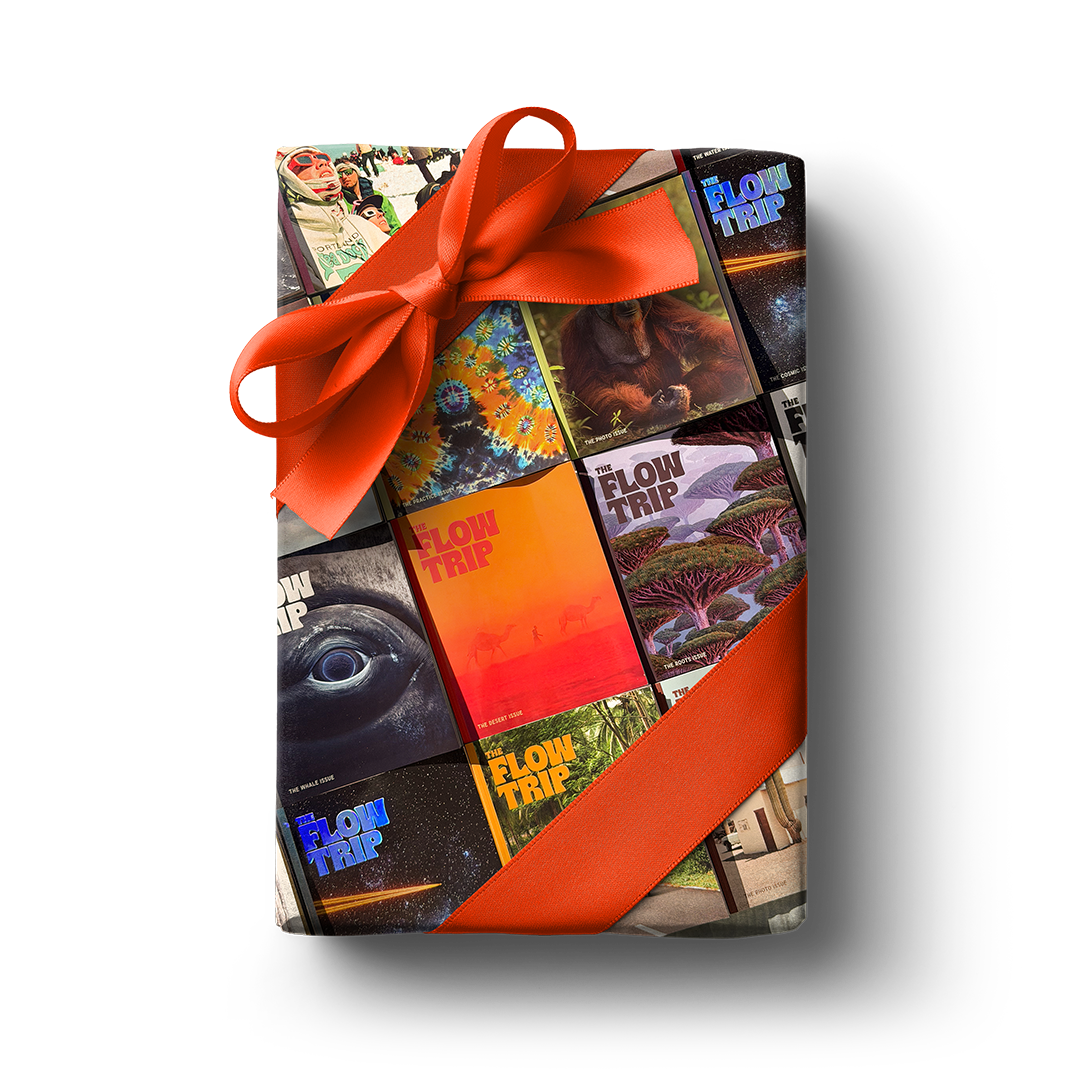Students of Life
The Flow TripWhen you really think about it, learning is a practice. Jamaican reggae singer Dennis Brown was on to something when he said, “You learn something new every day.” We are all students — students of life. The way we are taught plays a big role in how we move forward and exist in the world. At SOLFL, conscious educational practice is at the heart of their teachings, with emphasis on their Six Pillars of Growth — Mind, Body, Soul, Conscious Creators, Art, and Nature — while focusing on supporting the overall and holistic growth of their students. The Flow Trip was fortunate enough to sit down with SOLFL music teachers Juan and Kelsey for a conversation between them and their 11-year-old student LouLou, to get a glimpse into their way of teaching, how the practice of music goes beyond instruments, and how we are all students of life, for life.

LouLou: Would you call yourself a teacher or something else?
Juan: No, I don't call myself a teacher, nor do I identify as such, because learning is my favorite thing. I think that's what keeps us alive. When someone calls themselves a teacher, it is like they have mastered something already. And honestly, I think the one thing that I want to master is being a student forever.
LouLou: Do children make you feel more connected to music?
Kelsey: Yes, because children don't have the filters that adults do. Children have been on this Earth less time, so they're coming in their pure form. There's that saying, “Kids say the darndest things.” It's because kids say what they're feeling. They're connected with their feelings, and they’re so honest. They don't have to think of anybody else. They're just really connected with themselves and the truth.
LouLou: How do you maintain harmony when teaching so many young children?
Juan: That's a wonderful question. I feel that we are able to keep harmony because we trust everybody involved in the creative process. Let's go back to the first question. We don't feel like teachers. When we're playing and showing you how to approach a part in your song, we see you as a colleague and another musician trying to experience the best moment in the present time. The harmony is kept because of the trust that we have that music is way bigger than our opinions or our knowledge. The harmony and the energy that comes when we play together just speak on their own.
Kelsey: I will also add that I like that you use the word harmony because harmony in music is when you have different voices or different parts coming together.
Juan: *Melodically begins playing a lovely piano tune in the background*
Kelsey: And those voices put together make an even bigger sound, right? Harmony means voices are coming together and different parts are coming together. So how do we maintain harmony when we're with a lot of kids, or while teaching a group? We give everybody a part so that they feel like they're included. That's how we maintain harmony, really helping everybody understand that your part is important, and we need you to make this happen. Then everybody feels empowered. Like, “Oh yeah. We're doing this together. We're making this beautiful sound.”
LouLou: How do you think music can heal the world or bring it together?
Kelsey: We like to say, and we didn't make this up, there are a lot of people that believe this in the world, that music is a universal language. What does that mean? Any human on this planet can connect with music. Because it's something that exists in our species as human beings. When someone's playing a drum, we can respond, we can move our bodies. It's just natural to who we are as a species. So how can music make the world a better place? Well, if it's a universal language that means anyone can access it, and it has the power to bring people of all ages, cultures, religions, and backgrounds together. Music actually helps people become better humans because it makes you a better listener. It makes you connect. It makes you present in the moment; when you're listening to music, you're not thinking about anything else. You're feeling, you're connected.
LouLou: Does music help you two specifically connect to the world?
Juan: Oh my gosh. 100 percent. For me, music has been the real passport in my hand to experience culture. Dollars, people, new friendships, opportunities, beautiful places. When I first started traveling and studying, there were some languages that I didn't speak, you know, so I felt very insecure about myself, but the moment that I was in a musical situation, I felt connected.
LouLou: How do you feel when you play music?
Juan: I feel free. I feel alive. I can feel the vibration of the people that I'm playing music with and see it. And honestly, I feel that I'm connected to a bigger thing. We can call it God, we can call it love, we can call it whatever. But when I'm playing music, I feel that I'm channeling a bigger power and love that can heal the world.
LouLou: Okay, when you're feeling stressed, is the first thing you turn to music?
Juan: If I'm stressed, I will just put my shoes on and go for a run. But then when I go further on, I think about what song I want to listen to and why. So I think the practice of not letting a stressful situation take over your emotions is very important, and music is key there. Whether you're listening or practicing music is a very powerful way to get out of your thinking and get into the feeling.
LouLou: What is your favorite thing about sharing your musical knowledge with children?
Juan: I hope, regardless of the quality of my knowledge, what I'm sharing is the passion and not just knowing how to learn to play music, but how to learn to love music, and to make sure that future generations are going to have that love for music and that love for self-expression and connecting with the world, being one and just being creative and playing instruments forever.
Kelsey: I love being the person, the guide, the example, to children, to people younger than me that I never had when I was a kid, I grew up with music, but I didn't have a person in my life that was someone that I looked up to musically, that like really gave me all the tools to just go for it, be confident, be yourself. I kind of had a different experience.

Kelsey: My question for you is, you're younger than us, but you've already gravitated towards the drums. You're really into music. What has kept you in it?
LouLou: Two things. First, just music itself. Second, the teachers that are teaching me music are also the biggest part of it, because if you're learning from the meanest teacher ever, are you going to stay with that teacher, and are you going to stay playing instruments?
Kelsey: You bring up a really good point. Because I think a lot of people who read this could relate. A lot of adults talk about how much they love music or how they used to play the piano. But then go on to say it was really boring or their teacher wasn't nice, and that becomes the reason why people don't connect with music on their own. It's the environment and the people that are giving you the knowledge. If they aren’t inspiring you and they let music go as a personal practice, it can be hard for you to really connect with it.
LouLou: So really, the reason I stayed in it is you guys.
Juan: And you know what's important to recognize is it's almost like you're holding us accountable to continue to share our passion and our love for music, without getting into the specifics of teaching, because at the end of the day, you will develop a relationship with music that will serve you in a beautiful way.
An Interview with Dr. Sylvia Earle
The Flow TripJack Johnson: The Interview
The Flow TripA Tapestry of Tradition and Tomorrow
The Flow TripSubscribe to The Flow Trip (Limited-time 50% off)
Give the Gift of The Flow Trip (50% off)
- Choosing a selection results in a full page refresh.
- Opens in a new window.


